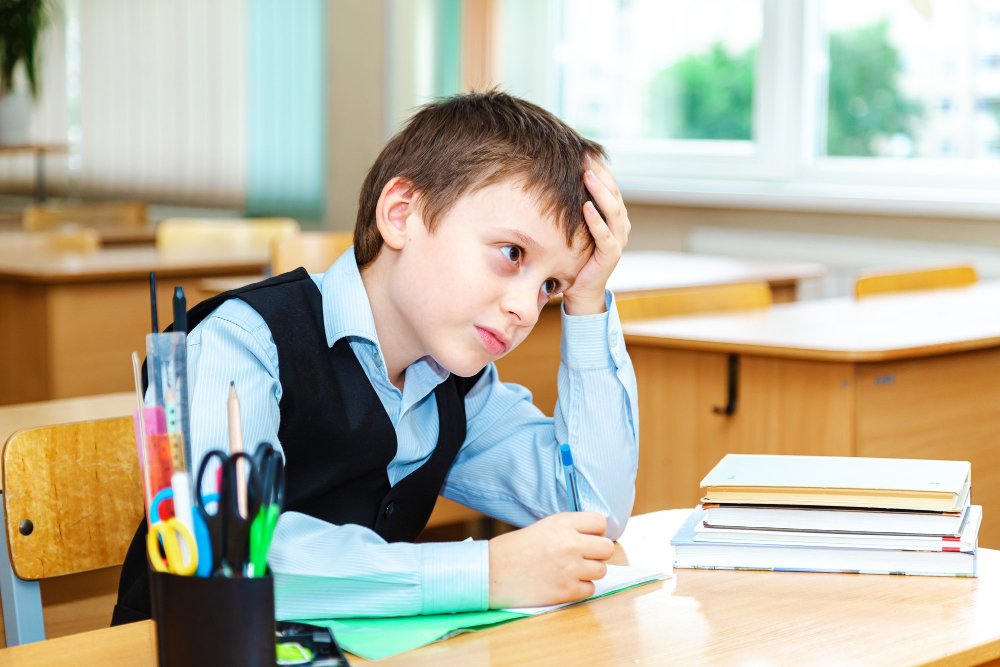Exploring the laissez-faire parenting style, this article will delve into its characteristics, potential impacts and how it compares to other parenting styles.
Laissez-faire parenting, often termed as ‘hands-off’ parenting, is a style that promotes independence and freedom in children, with minimal interference from parents. This approach emphasizes self-reliance and self-discovery, allowing children to make their own decisions and learn from their own mistakes.
While it may seem simple, the laissez-faire parenting style has its own complexities and nuances that can significantly impact a child’s development. This article offers a comprehensive understanding of this parenting style, its pros and cons, and practical tips for implementing it effectively.
Whether you’re considering adopting the laissez-faire approach or simply want to understand it better, this piece will provide all the necessary details.
Key takeaways:
- Laissez-faire parenting promotes independence and self-discovery.
- It emphasizes autonomy, trust, and self-regulation in children.
- Challenges include difficulty following rules and potential lack of structure.
- Benefits include problem-solving skills and fostering independence.
- Balance is key, with guidance and support when necessary.
Here You Will Learn:
Understanding Laissez Faire Parenting Style

This style embodies a laid-back, relaxed approach where parents refrain from setting rules or guidelines for their children. The term ‘laissez-faire’ originates from the French language, meaning ‘let do’, an apt description of this non-intrusive parenting style.
Here, the children are given freedom to navigate their choices and actions independently, with parents stepping in primarily to provide basic needs and safety. However, it’s essential to note that this approach does not represent neglect, rather it emphasizes autonomy, trust, and self-regulation in children.
Parents adopting this style must encourage open dialogue about choices and consequences, instilling the process of responsible decision-making.
What Is Laissez Faire Parenting?

This particular parenting approach puts the onus on children to take responsibility for their actions, decisions, and problems. It’s characterized by low levels of parental control and high degrees of personal freedom for the child.
The parent, acting as a laid-back observer, rarely enforces rules or guidelines and often refrains from offering direction or advice unless explicitly asked. The fundamental belief is in allowing children to learn organically through their experiences, encouraging autonomy, personal growth, and decision-making skills.
However, the approach also has its pitfalls, which will be addressed in the proceeding sections of this discussion.
Origin and History of Laissez Faire Parenting

The term ‘laissez-faire’ has its roots in economics and political science, where it refers to non-interference by the state in commercial affairs. Introduced into parenting by child psychologists in the 20th century, this non-interventionist approach inspires open communication between parents and children whilst allowing for child-led decision making.
The primary goal is nurturing independence, decision-making skills and self-reliance. However, it’s crucial to remember that a lack of limits or guidance can lead to intense consequences if the balance tips too far into neglect.
In the history of child-rearing, this style has seen fluctuating popularity, being both lauded for promoting self-reliance and criticized for risking underparenting.
Characteristics of Laissez Faire Parents

These parents typically grant an enormous level of independence to their children, rarely meddling in their affairs unless necessary. They allow children to engage in activities, make mistakes and solve problems without much interference.
Discipline and control are somewhat relaxed with an emphasis on independence and autonomy. These parents are often perceived as permissive and non-domineering, as they give their children an ample amount of freedom to make their own choices. They may refrain from setting strict rules and seldom demand high standards of behavior.
However, they are always available when the child needs support or guidance, often serving as a safety net, instead of actively guiding daily life. Overall, their primary focus is on nurturing a harmonious relationship rather than controlling behavior.
What Are Some Laissez Faire Parenting Examples?

To illustrate this parenting style in action, consider a parent who allows their child to determine their own bedtime, meal choices, extracurricular activities, and homework schedules. In this approach, the child can try out for the school play, join a sports team, or quit an activity they don’t enjoy without seeking parental permission. The parents provide necessary resources and support but refrain from influencing their child’s decisions.
Another example is permitting a child to face the repercussions of forgetting their homework or not studying for a test. Rather than stepping in to solve the problem, the laissez-faire parent encourages learning from mistakes, fostering self-regulation and responsibility.
In essence, these scenarios exemplify the laissez-faire parents’ ethos: trust in their child’s judgment and ability to learn through experience, while providing a safety net of love and support when required.
Child Development Under Laissez Faire Parenting

When it comes to how children develop under this style, key outcomes are often centered around independence and self-regulation.
This is primarily because they are endowed with considerable freedom to make personal decisions. However, challenges can arise. One of the potential drawbacks in certain cases is lack of structure that can lead to difficulty following rules outside the home, including academic settings.
On the positive side, children under laissez-faire parenting may hone their problem-solving skills since they are encouraged to find solutions on their own from an early age.
Such children can often handle failure well and see it as a learning opportunity. But, without parental aid, some children may struggle to handle complex situations, which could lead to low self-esteem or negative behaviors.
Assessing these varied outcomes underscores the need for balance in implementing the laissez-faire approach.
Pros and Cons of Laissez Faire Parenting

Fostering independence is a significant advantage of this style. By not frequently intervening, parents allow children to develop problem-solving skills and confidence in their abilities.
Additionally, kids learn to take responsibility for their actions as they make their own decisions.
However, this style has its challenges. Without appropriate stress on guidelines, children could struggle to differentiate right from wrong or may exhibit poor behavior due to perceived neglect.
Laissez-faire parenting might also lead to academic underperformance, as children lacking direct guidance may not dedicate enough effort to their studies.
Lastly, they may also struggle with forming secure attachments due to a lower level of parental involvement, which can affect their future personal and professional relationships.
As with any parenting style, the key lies in balance. While it’s beneficial to foster independence, it’s equally crucial to provide guidance and support when necessary.
Impacts of Laissez-Faire Parenting

While promoting independence and self-reliance, the laissez-faire approach can have contrasting effects. On one hand, children nurtured in such an environment often exhibit elevated levels of creativity and problem-solving skills owing to their freedom to explore and learn. They develop a keen sense of autonomy, fostering their confidence and decision-making abilities.
On the other hand, the lack of boundaries and consistent discipline can lead to potential challenges. Children could develop a sense of entitlement or portray antisocial behavior, often struggling with rules and structure. Without clear guidance, they might struggle in situations that require discipline and self-control. Furthermore, academic performance can sometimes suffer if a child is not pushed to meet certain educational standards. These impacts largely depend on the individual child’s temperament and surrounding influences.
Influence of Laissez Faire Parenting On Child’s Behavior

With minimal rules enforcement and reduced parental direction, children raised under this model often display a high level of self-determination and independence. They are used to making their own decisions and handling the resultant outcomes, both positive and negative.
However, this liberty occasionally manifests as a lack of self-discipline since these children tend to not be accustomed to stringent boundaries. They may struggle with authority figures such as teachers or future employers, exhibiting defiant behavior when faced with guidelines and responsibilities.
One must note that the absence of control doesn’t equate to the absence of support. In situations where the child feels overwhelmed, parents should step in to provide guidance while helping the child to draw their own conclusions. A balance must be struck to ensure a well-rounded development.
How Laissez Faire Parenting Affects Academic Performance

Known for promoting independence, laissez-faire parenting can sometimes yield mixed results concerning a child’s academic performance. Without strict supervision, children have the freedom to cultivate their interests and direct their own learning. This autonomy can foster a sense of self-motivation and curiosity, potentially leading to enhanced creativity and problem-solving abilities.
However, insufficient guidance might make it difficult for some children to structure their studies effectively, possibly leading to poorer academic performances. A lack of enforced boundaries could also result in easy distraction and underachievement, especially if the child is inherently less goal-oriented or disciplined.
Thus, it’s essential for laissez-faire parents to strike a balance – providing children the freedom to explore their academic interests while also ensuring they understand the importance of commitment and discipline in their studies.
Expert Opinions On Laissez Faire Parenting

Renowned psychologists have voiced varying opinions on the laissez-faire approach. In general, experts assert that it fosters independence and decision-making skills, with psychologist Dr. Sears endorsing its value in creating self-reliant individuals. Conversely, there’s criticism regarding potential lack of structure. Dr. Laura Markham suggests that children may feel uncared for, as the approach can sometimes be misinterpreted as parental neglect.
Differentiating between true laissez-faire and simple neglect is essential, and finding the balance can be tricky. It’s recommended that parents following this approach ensure their children feel loved and supported, while still fostering their independence. Parents should allow freedom within defined boundaries to ensure safety and emotional security.
FAQ
What are the effects a laissez faire parenting?
Children raised with laissez-faire parenting often struggle with emotional regulation, concentration, and forming healthy interpersonal relationships.
What are the key characteristics of the laissez faire parenting style?
The laissez faire parenting style is characterized by low levels of parental control and high degrees of child freedom, often leading to children becoming self-reliant, yet potentially lacking discipline and structure.
How does laissez faire parenting influence a child’s social and emotional development?
Laissez faire parenting, characterized by lack of restrictions and low parental involvement, can lead to poor social skills and emotional instability in children due to their struggle with a lack of guidance and support.
In which situations could laissez faire parenting be most beneficial and why?
Laissez faire parenting can be most beneficial in situations where children are naturally independent and self-motivated, as this parenting style provides ample room for self-exploration and personal development.
Related Reading
- 4 Types of Parenting Styles: Understanding Your Approach to Child-Rearing
- Baumrind Parenting Styles: Find Your Best Fit
- Parenting Styles Psychology: Understanding Child-Rearing Approaches
- Resolving Conflict: I Hate My Husband’s Parenting Style
- Understanding Dolphin Parenting Style: Benefits and Strategies